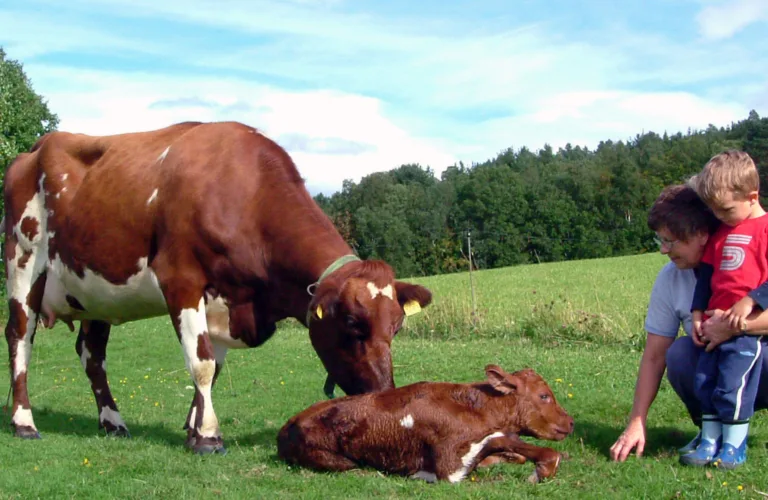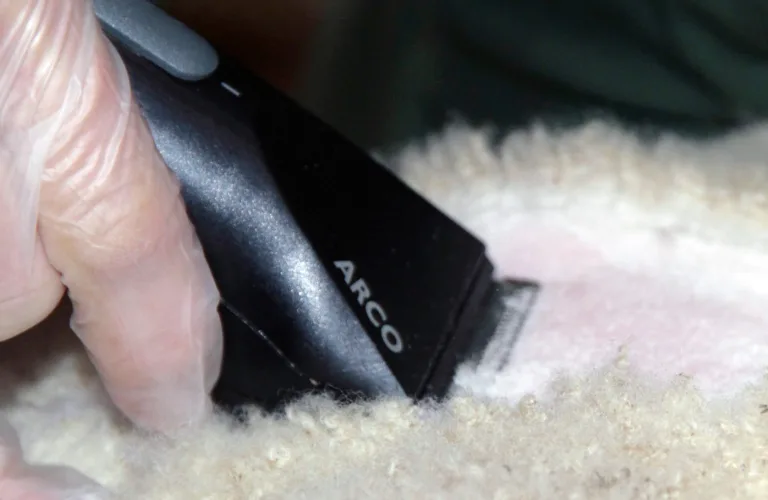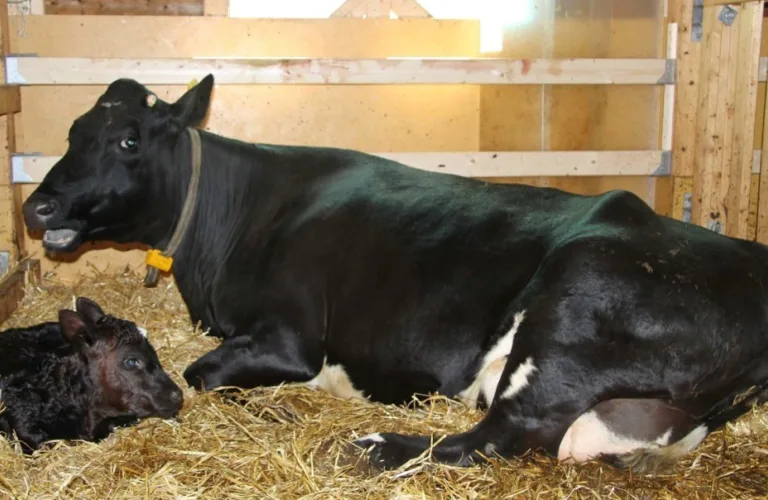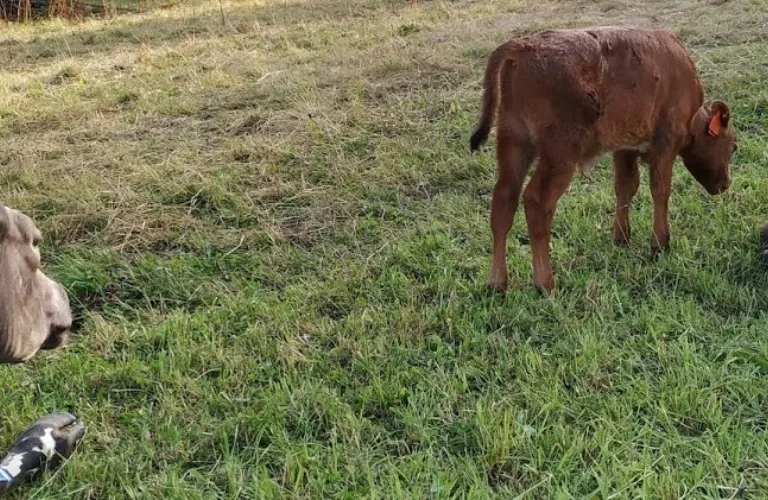co-operating cow-calf for better animal welfare and economy in milk production.
Digital monitoring and new operating solutions – co-operating cow-calf for better animal welfare and economy in milk production.
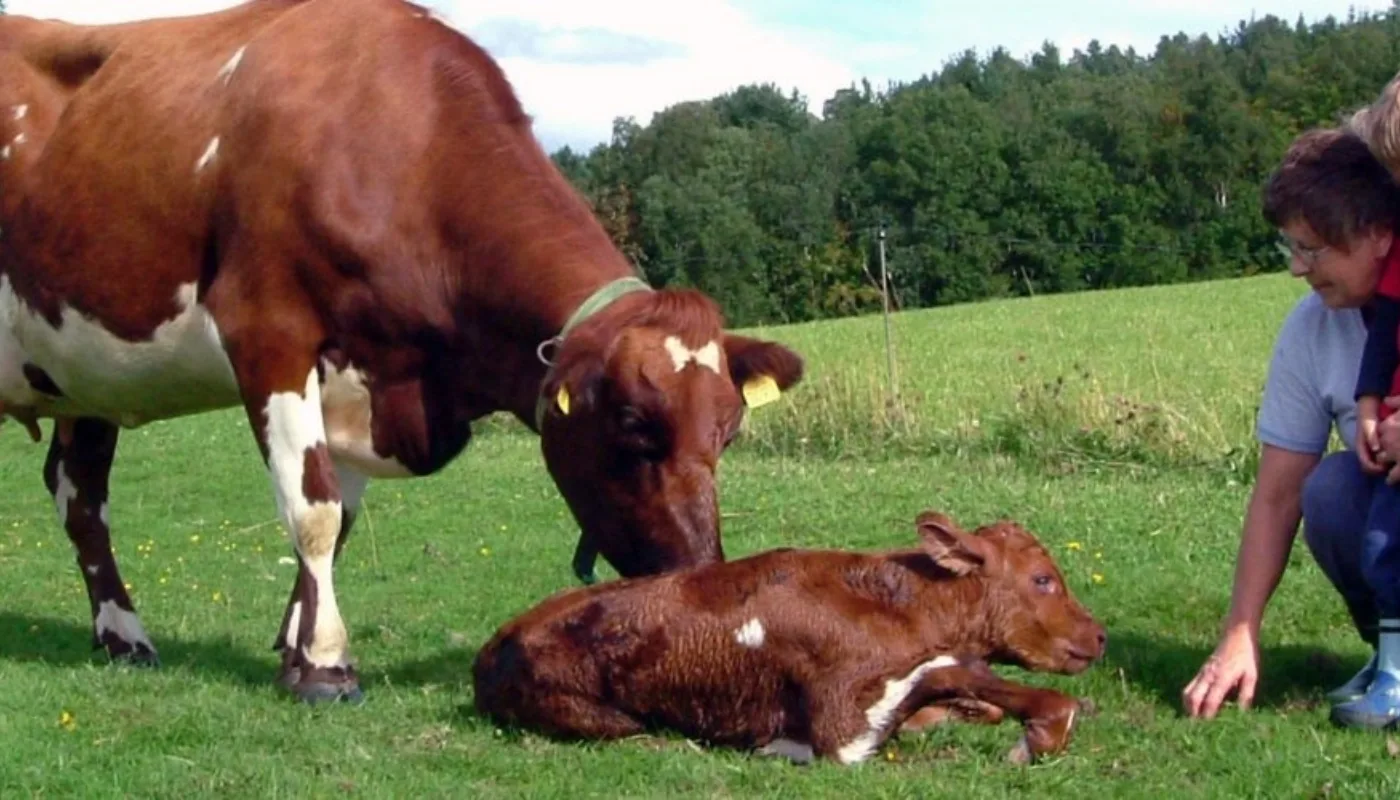
Does it mean better animal welfare and animal health if the calf joins the mother for a long time? And how can this be solved – practically?
By allowing cows and calves to graze together for a longer period, the natural behavioral needs of the animals will be met to a greater extend. The animals will also harvest a larger portion of the feed directly through grazing, and there may be a potential for less labor and increased calf growth. At the same time, it is likely that the delivered milk quantity will be less when the calf has free access to milk form the mother, compared to a system where the calf is allocated the recommended milk quantity.
Consumers are increasingly engaged in animal welfare in livestock production, and it is therefore important to gain knowledge about how to develop practical and economically profitable operating systems for the milk production where cow and calf can graze together. Researched -based knowledge is needed under Norwegian conditions om how various operating systems for co-operation of cow and calf affect animal welfare.
The main objective of the project is to investigate whether cohabitation between cows and their calves in milk production systems can provide better health, animal welfare and farm economy compared to traditional management, which Is to separate the calf from the mother right away or after a few days. This will be highlighted through several sub-goals, such as the development of digital surveillance systems, development of operating buildings and facilitation of area for co-operation, and we will also examine the farmer’s motivation for new solutions and effects on production, workload and economy.
Project Details
Project details
| Project owner: | NORSØK |
|---|---|
| Project staff NORSØK: | Rosann Johanssen |
| Project partners: | Norwegian Institute of Bioeconomy Research (NIBIO), Landbruk Nordvest, Solem Sag AS and Nofence Grazing technology |
| Funding: | Regionalt forskningsfond Midt-Norge, Fylkesmannen, Sparebanken Møre, Nofence, Landbruk Nordvest, Solem Sag |
| Project period: |
Publications
No publications found

